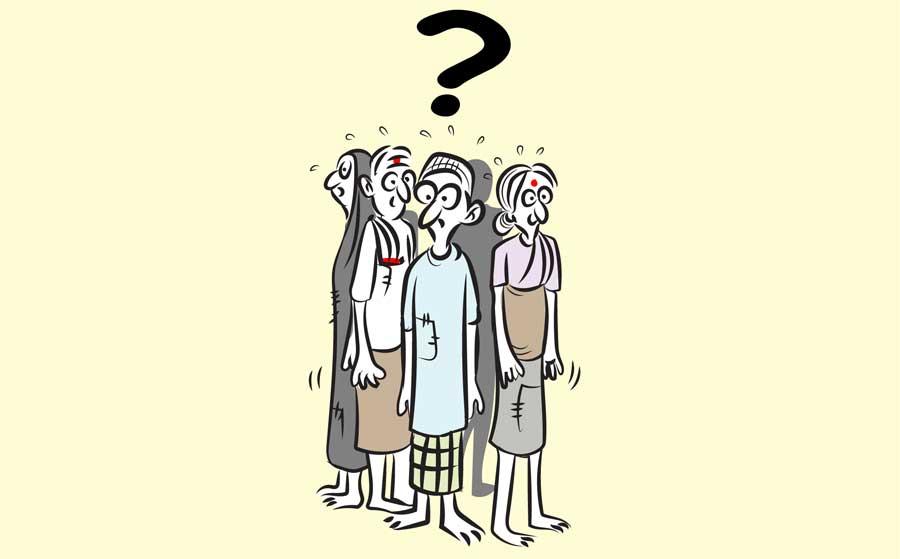Reply To:
Name - Reply Comment

The Governments of Sri Lanka have in the past taken decisions which have affected the minority communities. One such decision was the ‘Sinhala Only Act’ in 1956 which the Bandaranaike Government brought into effect. This forced ethnic communities which spoke Tamil and English to learn Sinhala if they wished to gain promotions in state sector employment. They were given three years to do so.
Now the GoSL wants to impose restrictions on the Muslim community. Wearing the ‘burqa’ and the ‘niqab’ is to be banned in due course once a proposal to do so is presented in parliament and passed by a majority vote.
The regime states that face coverings would be banned in the future purely for security reasons.
For the record some European countries like France, Denmark, Belgium, Austria and France have banned the veil.
We all know what repercussions the country faced due to the Easter Sunday bombings. One community that was severely affected by the carnage was the Christians. The regime is yet to do justice to this community because no official has been held responsible or punished from the past government for the lapses in national security. That Christian community is still demanding justice and maintaining calm; thanks to the Christian way of forgiving.
Matters of religious importance are sensitive. Extremist Zahran Hashim and his clan caused destruction and perished. No sections of the Muslim religious texts support the actions of extremist Zahran and his followers. Now the entire Muslim community is suffering the consequences of those happenings which took place on April 21, 2019.
The Muslim community points out that the proposed ban would affect their culture and practices. Going further some point out that what could be law soon would deny a community’s right to wear what its religious scriptures prescribe as attire.
The proposal to ban head covers was presented by a 16-member Sectoral Committee last year. If this proposal becomes law the Attorney General would advice the Police on how the new law should be implemented.
The GoSL must find ways to accommodate minority communities like the Muslims. We see President Gotabaya Rajapaksa visiting rural areas where there is a Sinhala majority. In these places he attends to his programme titled ‘A discussion with the village’. President Rajapaksa must also visit the north and east; where Tamils and Muslims respectively would pour out their grievances if given an opportunity.
The GoSL much remember that Sri Lanka is a multi-ethnic and multi-religious country which must have features of a plural society. But at the same time it must be mentioned that these attires with face covers were never the traditional wear of Sri Lankan Muslim women and was hardly visible 40 years ago.
These clothes with veils became the attire of Muslim women in the 1980s and 90s. When reflecting on this dress code for Muslim women some sections of the population feel that radicalization has crept into this community; something which the Muslim community must tackle themselves.
Reconciliation doesn’t mean working to build strained relationships only in war-torn areas where there is a heavy Tamil presence. The Muslims are largely part of this country and have made their share of contribution to mother Lanka in education, architecture, business, sport and most importantly in the fight against terrorism. Acts like banning attire that’s purely worn by Muslim women will only lead to the polarization of a section of this society rather than unite communities.
For the record the National Peace Council has called on the Government to reconsider the proposal to ban head covers. Let’s remind those who walk the corridors of power that there are others whose faces are covered in the likes of cultural dancers (wood masks), bike riders (Helmets) and almost everybody who wears the KN 95 mask to protect the respiratory passage from being infected by the COVID-19 virus.